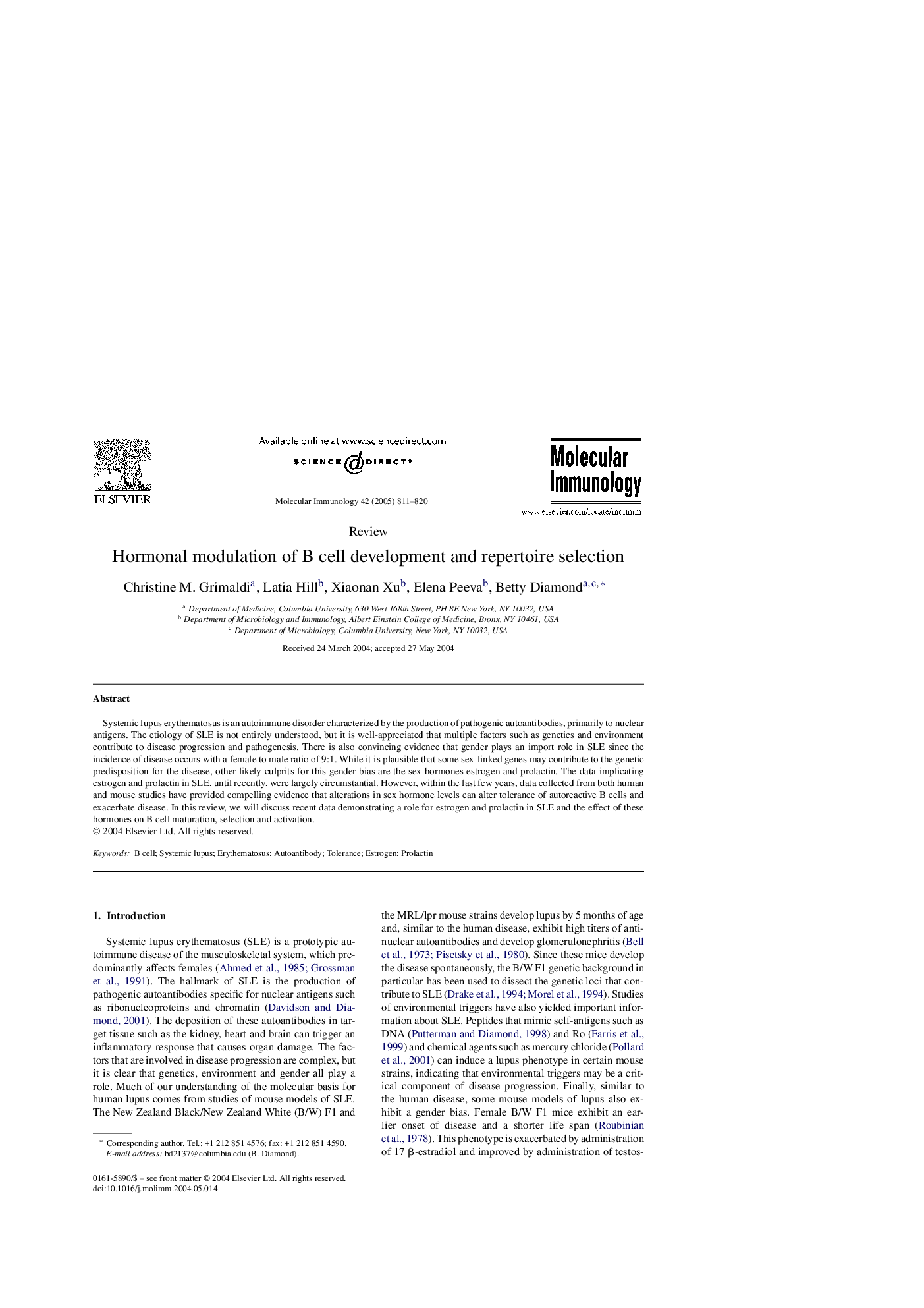| Article ID | Journal | Published Year | Pages | File Type |
|---|---|---|---|---|
| 9141878 | Molecular Immunology | 2005 | 10 Pages |
Abstract
Systemic lupus erythematosus is an autoimmune disorder characterized by the production of pathogenic autoantibodies, primarily to nuclear antigens. The etiology of SLE is not entirely understood, but it is well-appreciated that multiple factors such as genetics and environment contribute to disease progression and pathogenesis. There is also convincing evidence that gender plays an import role in SLE since the incidence of disease occurs with a female to male ratio of 9:1. While it is plausible that some sex-linked genes may contribute to the genetic predisposition for the disease, other likely culprits for this gender bias are the sex hormones estrogen and prolactin. The data implicating estrogen and prolactin in SLE, until recently, were largely circumstantial. However, within the last few years, data collected from both human and mouse studies have provided compelling evidence that alterations in sex hormone levels can alter tolerance of autoreactive B cells and exacerbate disease. In this review, we will discuss recent data demonstrating a role for estrogen and prolactin in SLE and the effect of these hormones on B cell maturation, selection and activation.
Related Topics
Life Sciences
Biochemistry, Genetics and Molecular Biology
Molecular Biology
Authors
Christine M. Grimaldi, Latia Hill, Xiaonan Xu, Elena Peeva, Betty Diamond,
